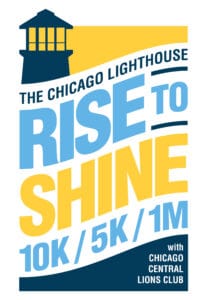Q&A with Dr. Michael Smith, Psychologist
What inspired you to choose your career path?
I was always interested in helping others. And so, initially after high school, I went and got an associate degree in nursing, and I worked as a registered nurse for a number of years. At some point, I decided that I didn’t want to be doing that when I got older. So, I went back and got my doctorate in clinical psychology, and have been working as a psychologist for 30-some-odd years.
Why is it important for people experiencing vision loss to have psychological services?
For really anything for kind of emotional and psychological health it’s important to share the experiences for all kinds of reasons. But we certainly know as psychologists, and certainly all the research suggests that the ability to connect and share experiences with others is vital to living a healthy life. Obviously, vision loss has a significant impact on people’s lives, including under the stress of adapting and adjusting to the realities of having a really different kind of experience in the world. We have a really visual world, and so the adjustment to that is really difficult at times, and it’s really ongoing. So the goal of living kind of a healthy, engaged life, even though you may have some visual difficulties, that’s the goal for everyone in life is to be healthy and engaged. It’s just a little bit bigger adjustment and more complicated if you have some visual impairment.
What do you want people to know about your work?
Sometimes it gets painted as pretty daunting and painful, etc. It really is difficult at times, but more often than not, it’s actually incredibly kind of, “fun” it’s not quite the right word, but it’s kind of pleasant. It’s the ability to share with somebody and connect with them that is a positive experience both for myself and also for the clients.
What is your favorite part of your job?
It’s kind of a privilege for people to be able to share their stories with me. And that really is one of the highlights of being able to connect and hear people’s stories and have them feel understood, have them feel appreciated, have them feel supported and encouraged, which is really one of the most important aspects of kind of how therapy works.
Happy Doctors’ Day!
If you would like to express your gratitude to a Lighthouse clinician for Doctors’ Day, you can donate in their honor, tell us how they have helped you, or both. To learn more, click here.


